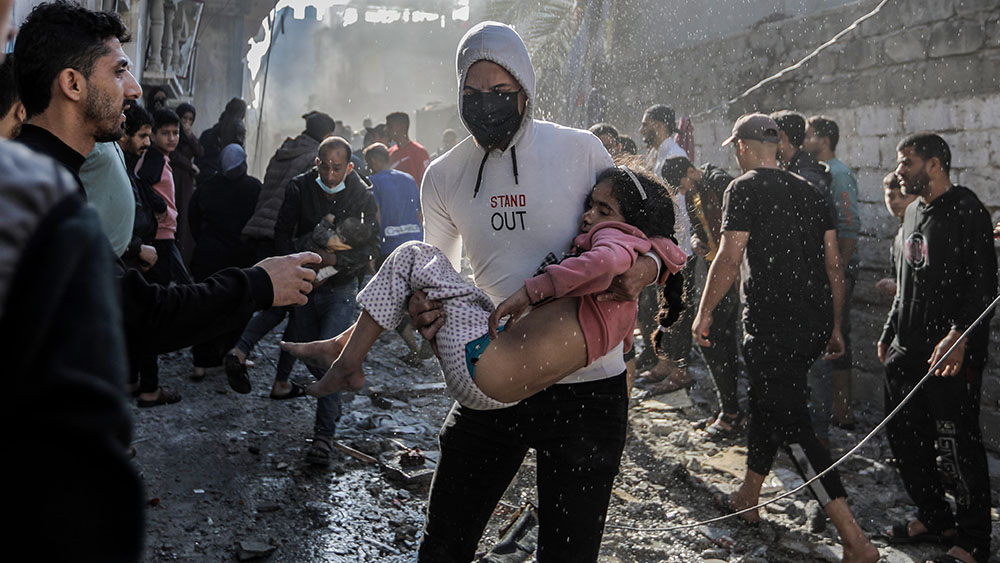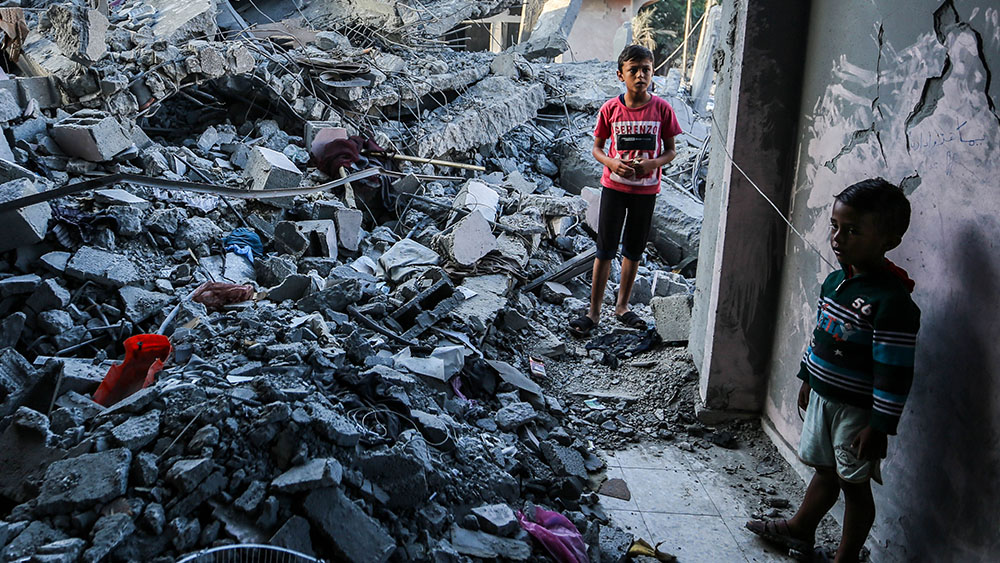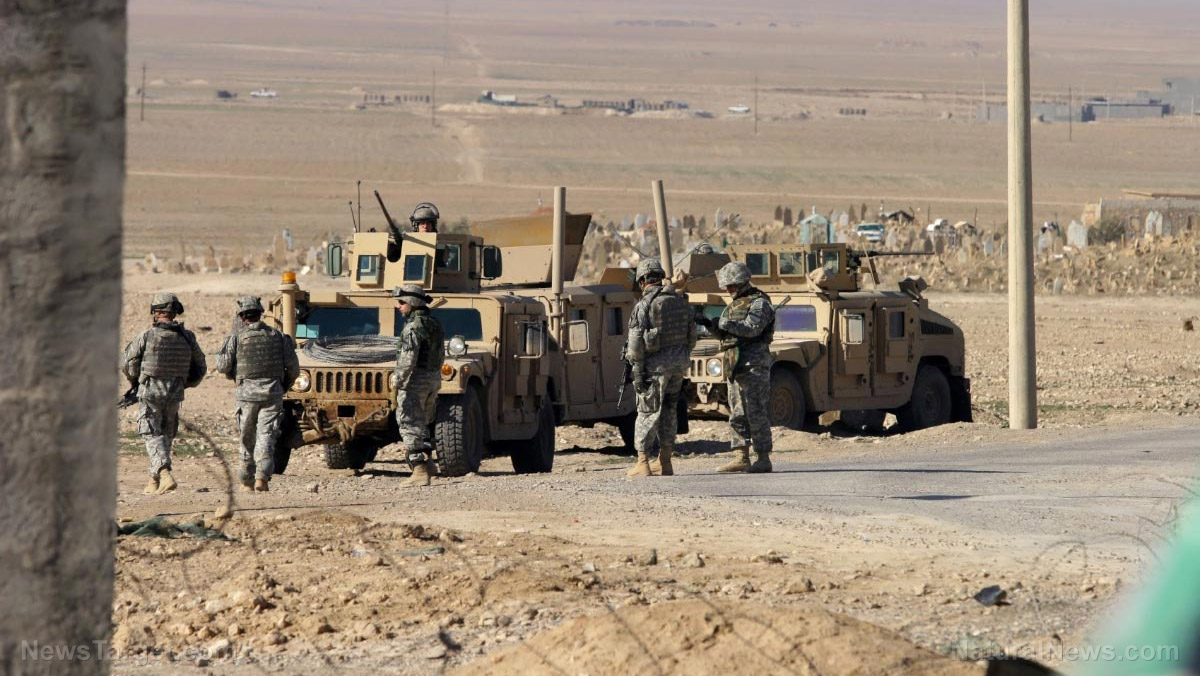 Parler
Parler Gab
Gab
The food shortage in Gaza has also caused various health problems. People have reported feeling kidney pain due to the intense dehydration. Others have said they are mixing salt water with other things to drink. Showering has also become a luxury, with families heading to the sea to bathe and wash their clothes. In schools-turned-shelters, there have been reports of widespread skin diseases and conditions due to the lack of clean water and overcrowding, In one site around 600 people are using one toilet, UNRWA reported. (Related: Globalists weaponize food and energy supply to pave the way for global "Holodomor.")It’s been 5 days since we last found & ate bread
It’s getting harder to find food in the markets Items that completely ran out include cheese, yogurt & mortadella A real starvation catastrophe has already started in #Gaza while Israel persists on cutting food and fuel supplies — Maha Hussaini (@MahaGaza) November 8, 2023
Israel continues to resist ceasefire calls
After more than 10,000 deaths due to the ongoing Israel-Hamas conflict, governments have been calling for a ceasefire. U.S. President Joe Biden, Israel's biggest backer, has not joined the many countries and organizations making that demand, however, calling instead for a "humanitarian pause" in the fighting. But Israeli Prime Minister Benjamin Netanyahu's administration has rejected both ideas, saying any let-up in its military operation would only give Hamas time to regroup and make good on its threat to repeat the bloody attack it launched on southern Israel earlier in October. In a recent interview with ABC News's "World News Tonight," Netanyahu told anchor David Muir: "Well, there'll be no ceasefire, general ceasefire, in Gaza without the release of our hostages. As far as tactical little pauses, an hour here, an hour there. We've had them before, I suppose, will check the circumstances to enable goods, humanitarian goods to come in, or our hostages, individual hostages to leave. But I don’t think there’s going to be a general ceasefire." Meanwhile, U.S. Secretary of State Antony Blinken touched on this during a gathering of the Group of Seven wealthy industrialized nations in Japan. He said that those calling for an immediate ceasefire must explain how to address the unacceptable result that this would likely bring about: Hamas left in place with more than 200 hostages, with the capacity and stated intent to repeat October 7. "We had in-depth discussions about the steps that we are taking to address urgent needs on the ground. We all agreed that humanitarian pauses would advance key objectives to protect Palestinian civilians, to increase the sustained flow of humanitarian assistance, to allow our citizens and foreign nationals to exit, and to facilitate the release of hostages," Blinken told reporters. Visit Starvation.news to read more stories related to attacks on Gaza's food supply. Sources for this article include: MiddleEastEye.net EuroMedMonitor.org ABCNews.go.com CBSNews.comIsrael bombs another school in Gaza, killing and injuring dozens
By Ethan Huff // Share
Ukrainian front line on the brink of collapse as soldiers’ morale plummets
By Cassie B. // Share
Nearly 60 U.S. troops in Iraq and Syria injured in series of attacks by Iran-backed militias
By Laura Harris // Share
Biden extends SANCTIONS WAIVER for Iran, giving Tehran access to $10 billion in frozen funds
By Laura Harris // Share
Governments continue to obscure COVID-19 vaccine data amid rising concerns over excess deaths
By patricklewis // Share
Tech giant Microsoft backs EXTINCTION with its support of carbon capture programs
By ramontomeydw // Share
Germany to resume arms exports to Israel despite repeated ceasefire violations
By isabelle // Share










